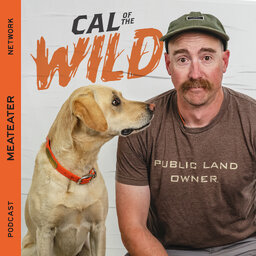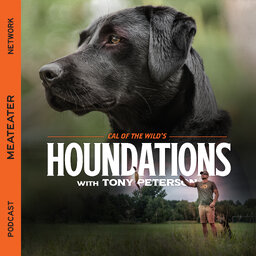Ep. 389: Houndations - Understanding Canine Genetics and How They Shape Our Relationship with Our Dogs
This week, Tony takes a deep dive into dog genetics to explain not only how they affect aesthetics, but also all sorts of positive and negative behaviors we might not fully attribute to their bloodlines.
Connect with Tony, Cal, and MeatEater
MeatEater on Instagram, Facebook, Twitter, Youtube, and Youtube Clips
MeatEater Podcast Network on YouTube
Shop Cal's Merch
 Cal of the Wild
Cal of the Wild


